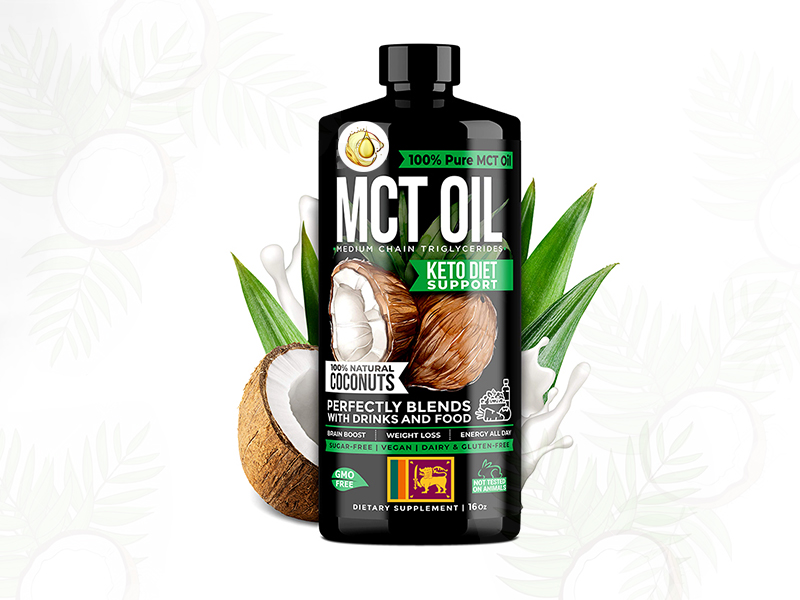Medium-chain triglycerides (MCTs) are fats found in foods like coconut oil. They’re metabolized differently than the long-chain triglycerides (LCT) found in most other foods.
MCT oil is a supplement that contains a lot of these fats and is claimed to have many health benefits.
Triglyceride is simply the technical term for fat. Triglycerides have two main purposes. They’re either burned for energy or stored as body fat.
Triglycerides are named after their chemical structure, specifically the length of their fatty acid chains. All triglycerides consist of a glycerol molecule and three fatty acids.
The majority of fat in your diet is made up of long-chain fatty acids, which contain 13–21 carbons. Short-chain fatty acids have fewer than 6 carbon atoms.
In contrast, the medium-chain fatty acids in MCTs have 6–12 carbon atoms.
The following are the main medium-chain fatty acids:
- C6: caproic acid or hexanoic acid
- C8: caprylic acid or octanoic acid
- C10: capric acid or decanoic acid
- C12: lauric acid or dodecanoic acid
Some experts argue that C6, C8, and C10, which are referred to as the “capra fatty acids,” reflect the definition of MCTs more accurately than C12 (lauric acid) .
Many of the health effects described below do not apply to lauric acid.

